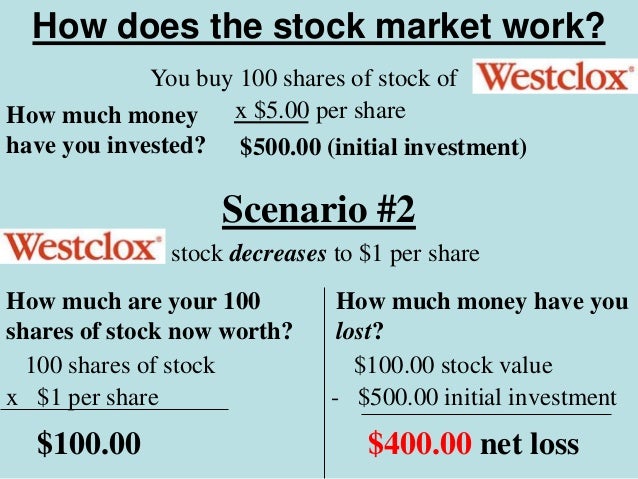If the thought of purchasing the stock exchange frightens you, you are not alone. More helpful hints People with very limited experience in stock investing are either terrified by horror stories of the average investor losing 50% of their portfolio valuefor example, in the two bearish market that have actually currently occurred in this millennium or are beguiled by "hot suggestions" that bear the guarantee of huge rewards however seldom pay off.
The truth is that purchasing the stock exchange carries danger, but when approached in a disciplined manner, it is one of the most effective methods to develop one's net worth. While the value of one's home typically accounts for the majority of the net worth of the average specific, the majority of the wealthy and very abundant usually have most of their wealth invested in stocks.
Secret Takeaways Stocks, or shares of a company, represent ownership equity in the firm, which give investors voting rights along with a residual claim on corporate incomes in the kind of capital gains and dividends. Stock markets are where specific and institutional financiers come together to purchase and offer shares in a public venue.

For example, a specific or entity that owns 100,000 shares of a company with one million outstanding shares would have a 10% ownership stake in it. Many companies have exceptional shares that encounter the millions or billions. Typical and Preferred Stock While there are 2 main kinds of stockcommon and preferredthe term "equities" is associated with typical shares, as their combined market price and trading volumes are numerous magnitudes bigger than that of favored shares.
Preferred shares are so called due to the fact that they have preference over the common shares in a company to receive dividends As assets in the event of a liquidation. Typical stock can be more classified in terms of their voting rights. While the standard property of typical shares is that they need to have equivalent ballot rightsone vote per share heldsome business have double or several classes of stock with different voting rights connected to each class.